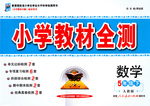题目内容
After 21 years of marriage, my wife wanted me to take another woman out to dinner and a movie. The other woman my wife wanted me to visit was my mother, who has been a widow for 19 years, but the demands of my work and my three children had made it possible to visit her only occasionally.
That Friday after work, when I arrived at her house, my mother waited in the door with her coat on. She had curled her hair and was wearing the dress that she had worn to celebrate her last wedding anniversary.
We went to a restaurant that, although not elegant, was very nice and cozy. My mother took my arm as if she were the First Lady.
During the dinner, we had an agreeable conversation nothing extraordinary but catching up on recent events of each other’s life. We talked so much that we missed the movie.
As we arrived at her house later, she said, “I’ll go out with you again, but only if you let me invite you.” I agreed.
A few days later, my mother died of a massive heart attack. It happened so suddenly that I didn’t have a chance to do anything for her.
Some time later, I received an envelope with a copy of a restaurant receipt from the same place Mother and I had dined. An attached note said: “I paid this bill in advance. I wasn’t sure that I could be there; but, nevertheless, I paid for two plates—one for you and the other for your wife. You will never know what that night meant for me. I love you, son.”
At that moment, I understood the importance of saying in time: ‘I love YOU’ and to give our loved ones the time that they deserve.
Nothing in life is more important than your family. Give them the time they deserve, because these things cannot be put off till some “other” time.
1. From the passage we can see _________.
A.the mother was happy to have dinner with her son
B.the author doesn’t like his work and his three children
C.the author and his mother went to a high-class restaurant
D.the author saw a movie with his mother after dinner
2. What can we know about the author’s mother according to the passage?
A.She wanted to celebrate her last wedding anniversary.
B.She wanted to invite her son to have dinner again.
C.She died of a massive heart attack very suddenly.
D.She wrote a letter to tell her son about her illness.
3. During the dinner, what did they talk about?
A.Extraordinary things.
B.Some national events.
C.Each other’s daily life.
D.Movies and dishes.
4. It can be inferred from the passage that_________.
A.the author regretted for not showing much love to his mother
B.the author was satisfied to do something for his mother
C.the mother felt happy to pay for the bill in advance
D.the mother was sorry for inviting her son to have dinner
5. The author of the passage tends to agree that _________.
A.family should be as important as work
B.work is more important than family
C.we can show our love till some other time
D.we should spend more time with our family
ACCAD

 小学教材全测系列答案
小学教材全测系列答案(吉林省实验中学2007届高三第四次模拟考试)
I ran into a stranger as he passed by. “I’m so sorry!” was my reply. Then he said. “Excuse me too——I wasn’t 21 watching for you.” We were very polite, this stranger and I. Then we went 22 our way after saying goodbye.
But at 23 , a different story is told. How we treat our loved ones, young and old. Later in the kitchen, as I 24 our meal, my daughter walked up to me , very still. When I turned, I 25 knocked her down. “Get out of the way!” I shouted with a frown. She stepped away silently, with her little heart 26 . I didn’t realize how harshly I had spoken.
That night, when I lay 27 in bed, God’s quiet voice spoke to me, “While 28 with a stranger, you are calm and polite, but with those you love, you are QUICK to excite—Go look around on the kitchen floor, you will find some flowers there by the 29 . Those are the flowers she brought for you. She 30 them herself—pink, yellow, and your favorite blue. She stood there quietly, and you never saw the 31 in her eyes.”
By this time, I felt sad and small and now my own tears had begun to fall. I quietly went and knelt by her 32 , “Wake up, my dear,” I said. “Are these the flowers you picked up for me?” She smiled, “I found them out by the tree. I 33 them in a napkin, just for you. I knew you’d like them, especially the 34 .” I said, “I am so sorry that I missed them today—and I 35 have fussed(发牢骚)at you that way.”
|
Do you know that: if you die tomorrow, the 37 you are working for could easily replace you in a matter of days. But the family you leave 38 will feel the loss for the rest of their lives. And come to think of it, we pour ourselves more into our 39 than into our families—an unwise investment indeed.
Remember that 40 =(F)ATHER—(A)NO—(M)OTHER—(I)—(L)OVE—Y(OU).
21.A.ever B.even C.just D.right
22.A.to B.in C.on D.for
23.A.school B.work C.home D.office
24.A.cooked B.had C.ate D.took
25.A.already B.hardly C.rudely D.nearly
26.A.lost B.missed C.beaten D.broken
27.A.asleep B.awake C.afraid D.alive
28.A.standing B.meeting C.going D.talking
29.A.floor B.kitchen C.window D.door
30.A.grew B.gave C.picked D.dropped
31.A.tears B.expressions C.smiles D.joy
32.A.desk B.bed C.body D.knees
33.A.wrapped B.covered C.put D.help
34.A.pink B.yellow C.blue D.black
35.A.needn’t B.shouldn’t C.mustn’t D.can’t
36.A.however B.besides C.anything D.anyway
37.A.company B.country C.place D.state
38.A.for B.with C.behind D.to
39.A.stranger B.loss C.meal D.work
40.A.RESPECT B.WARMTH C.FAMILY D.FRIEND